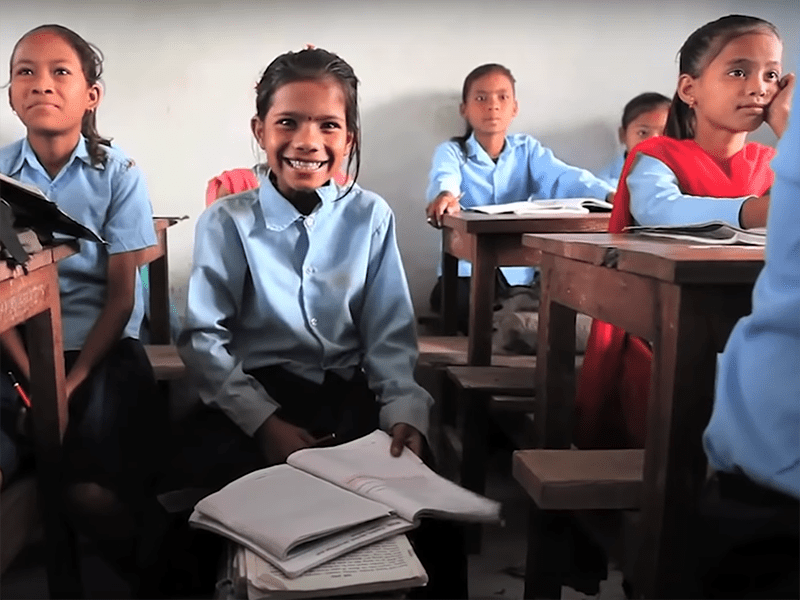Latest News

Photo: SSPI International
Working in space and satellite is technically challenging. Our friends in social media, online shopping, and ridesharing have it easy by comparison. It can be thrilling. Who else launches and lands rockets, or flies by planets and asteroids?
It can be a roller-coaster ride — especially now, when business models are being tested to the limit and assumptions about what is possible are being turned inside out.
But did you ever expect it to bring a tear to your eye or that swelling in the chest that comes from pride? You should — because you work in a business that does more than make technology and business breakthroughs. You work in a business that helps transform lives.
Finding the Missing Girls
Let me introduce you to Plan International. Founded in 1937, it is one of the world’s largest nonprofits fighting for children’s rights and equality between women and men. The role of women in society is a hot issue in the world’s rich nations. But in much of the world, just being female exacts a price we can hardly imagine.
Millions of girls are missing. They are missing from school. They are missing from jobs. They are missing from the leadership of their communities and nations.
Twelve million of them every year become child brides and teenage mothers. One hundred thirty million of them are not in school — worldwide, girls are almost twice as likely as boys to miss out on education. Of the more than 600 million unemployed young people in the world, most are female.
Plan International works with communities to tackle the fundamental reasons why girls and women go missing. Education, training, and technology are its tools. In the Philippines, it helps local farmers — most of them women — create new markets for their products. In Nicaragua, it trains girls in business — and also in how to protect themselves from violence so they can succeed as street vendors. In Bangladesh, it created a mobile app that lets traditional matchmakers learn the true age of brides and grooms. It stopped nearly 4,000 child marriages in its first six months.
And everywhere, it trains women in leadership, management and technology, so they can become teachers to others. Training has reached more than 6,000 women in 150 countries, and they are changing the world, one community at a time.
Going Where Others Can’t Go
Plan International’s mission takes it to places far beyond the edge of reliable and affordable terrestrial networks. That is why, for more than a decade, it has worked with ITC Global, which provides satellite communications to energy, mining, maritime, hospitality, and NGO markets. For Plan International, the company connects 24 offices and teaching sites across western and central Africa. ITC Global equips those sites with its “Office in a Box:” a satellite terminal that provides Wi-Fi, internet access, and telephone service.
The impact on Plan International, however, is profound. Connections let the organization operate at global scale, coordinating work across more than a dozen nations while keeping its operations lean and efficient. They amplify the impact of every dollar the organization raises and puts into the field.
If women everywhere had the same job opportunities as men, say the experts, it would add $28 trillion dollars to the world’s economy. To help get us part of the way there, Plan International set itself a major challenge: to transform the lives of 100 million girls for the better in just five years.
There is no way to accomplish a goal that ambitious without connectivity. That organization and thousands like it need us to keep doing our jobs, to keep mastering the technical challenges and riding the business roller-coaster. In return, they give us a gift. In the midst of our daily struggles, they grant us a precious moment for a tear in the eye and the swelling of the chest that comes with pride.
 Robert Bell is executive director of the Space & Satellite Professionals International. SSPI produces the Better Satellite World campaign, which dramatizes the immense contributions of space and satellite to life on Earth. More at www.bettersatelliteworld.com.
Robert Bell is executive director of the Space & Satellite Professionals International. SSPI produces the Better Satellite World campaign, which dramatizes the immense contributions of space and satellite to life on Earth. More at www.bettersatelliteworld.com.
Get the latest Via Satellite news!
Subscribe Now